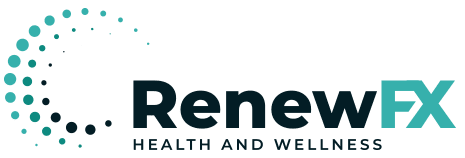Hormones Control Your Biological Clock
A most common indicator of aging is the steady decline of hormone levels. Anti-aging and hormone replacement therapy can turn back the clock!
The word hormone, from the ancient Greek, means to excite, and with good reason. Declines in various hormones have decidedly unexciting effects: slowdown in metabolism, deterioration of overall function, decrease in sense of well being, and other manifestations of aging. In fact, the “biological clock” theory of aging is based on the premise that hormones control the entire aging process, from birth to death.
Hormonal Decline
Hormone production declines as we age. For example, growth hormone is produced in abundance during the rapid growth from infancy through adolescence, falling off around age 20, when you stop growing. Estrogen and progesterone kick in as girls enter puberty and decline abruptly between the ages of 40 and 50, ending women’s reproductive years. Testosterone production steps up at about the same age in a boy, and then begins a more gradual tapering off from his mid-twenties throughout the rest of his life. DHEA and pregnenolone follow a similar trend in both men and women. Thyroid hormone levels likewise fall with age, although rates and curves vary significantly from person to person.
Longer Lives Mean Greater Need for Replacement Hormones
The average life expectancy is pushing 80 years. At the turn of the century it was 47, and at the beginning of the first millennium it was 26. Since we’re living so much longer, we are spending more and more of our lives in a state of relative hormone deficiency.
The idea that naturally occurring, age-related low hormone levels might be construed as a deficiency doesn’t sit well with conventional physicians. Although it’s true that these declines are natural and expected, it’s also true that they contribute to the ravages of aging. Replenishing these hormone levels back to what they were when you were at your physical peak, in your mid- to late-twenties, by supplementing with safe, natural forms of these hormones, has been shown to be highly beneficial to overall health and wellness.
Recommendations—Physiologic Replacement
Many studies show that physiological replacement of these hormones results in improvements in specific biologic functions and overall health. However, conventional physicians seem to be downright schizophrenic about the whole subject.
Our position on hormones is this: restore, optimize and balance those hormones that decline with age to normal youthful levels. This offers generalized health-enhancing effects, and it contributes to the slowing down of some of the deterioration associated with aging.
GH Therapies
GH therapies have been shown to contribute to increased skin thickness, bone mineral density and lean muscle mass, along with decreased body fat. GH therapies often slow down and reverse the aging process. Changes to the extent that researchers have equated in magnitude “to the changes incurred during 10 to 20 years of aging.” Today, Peptide Therapies have evolved as a popular alternative that enable patients to experience the benefits of Growth Hormone therapy.
Testosterone Has Energizing Effects
Testosterone supplementation for Low Testosterone significantly improves cardiovascular functioning, libido, lean muscle mass, energy and sense of well-being in men and, in much smaller amounts, enlivens libido in women. This prescription hormone is a staple in our practice, and we put a large percentage of our male patients over 50 years of age on supplemental testosterone, either in injected or topical form. We do not recommend oral testosterone or pellets. Women also benefit from very small doses of testosterone for improving libido, mood, and sense of well-being.
Don’t Overlook Thyroid Replacement
Thyroid hormone affects a wide range of physiological functions. If levels are low, thyroid replacement can help with weight gain, dry skin, hair loss, poor circulation, infertility, depression, constipation, chronic infections, and muscle and joint stiffness. Thyroid is one of the most overlooked hormones considered for replacement in aging people. Laboratory tests for thyroid often miss mild cases of hypothyroidism (low thyroid) because the “normal” ranges are so broad. We look for clinical signs of low thyroid in addition to laboratory analysis.
Estrogen and Progesterone
Estrogen and progesterone, the quintessential female hormones, rapidly decline during the menopausal years. Restoring youthful levels with natural, bioidentical hormones—not horse estrogen and synthetic progesterone—are excellent therapies for older women. They relieve menopausal symptoms, help stop bone loss, improve mood and skin hydration, and, when used topically, protect against heart disease.

